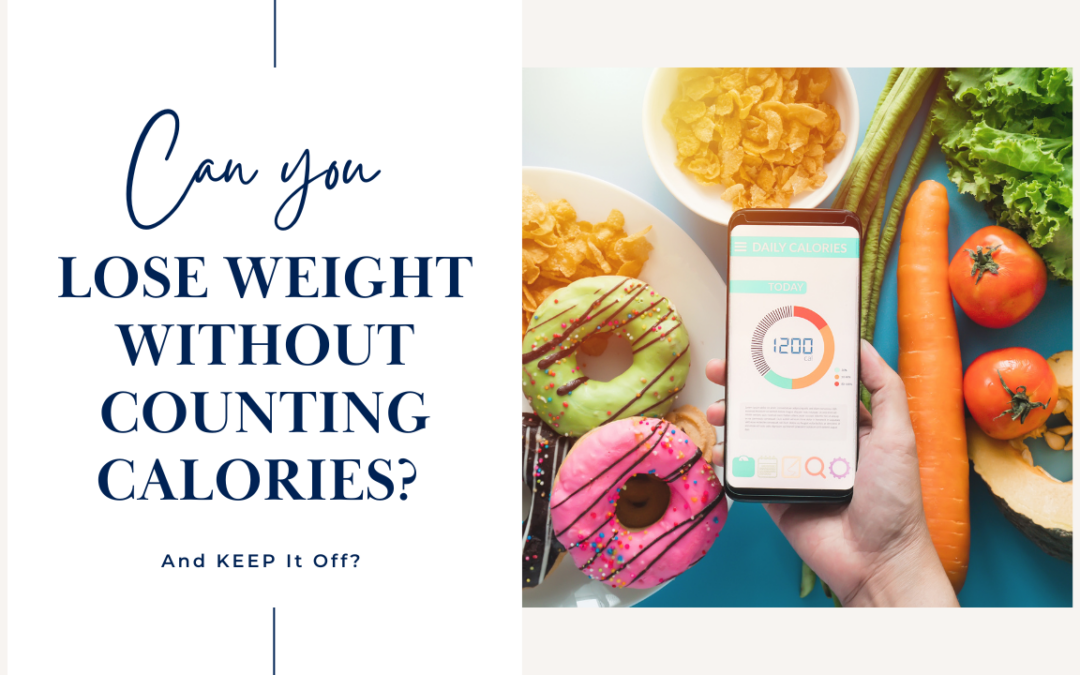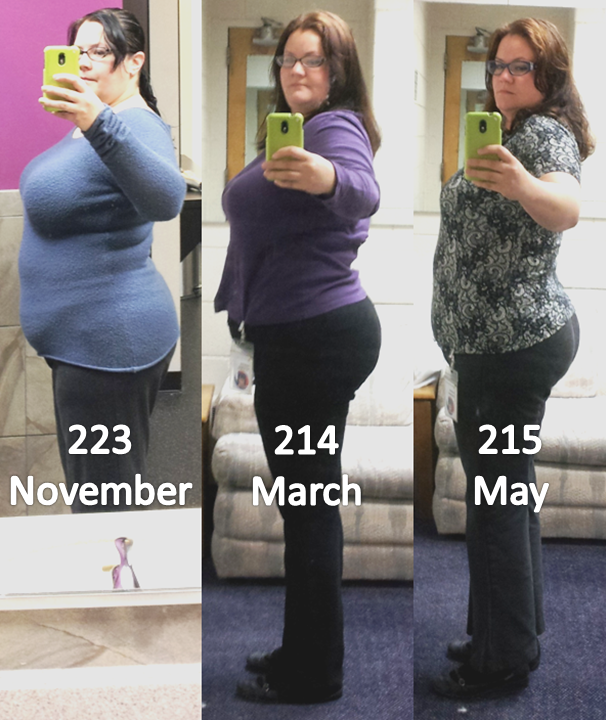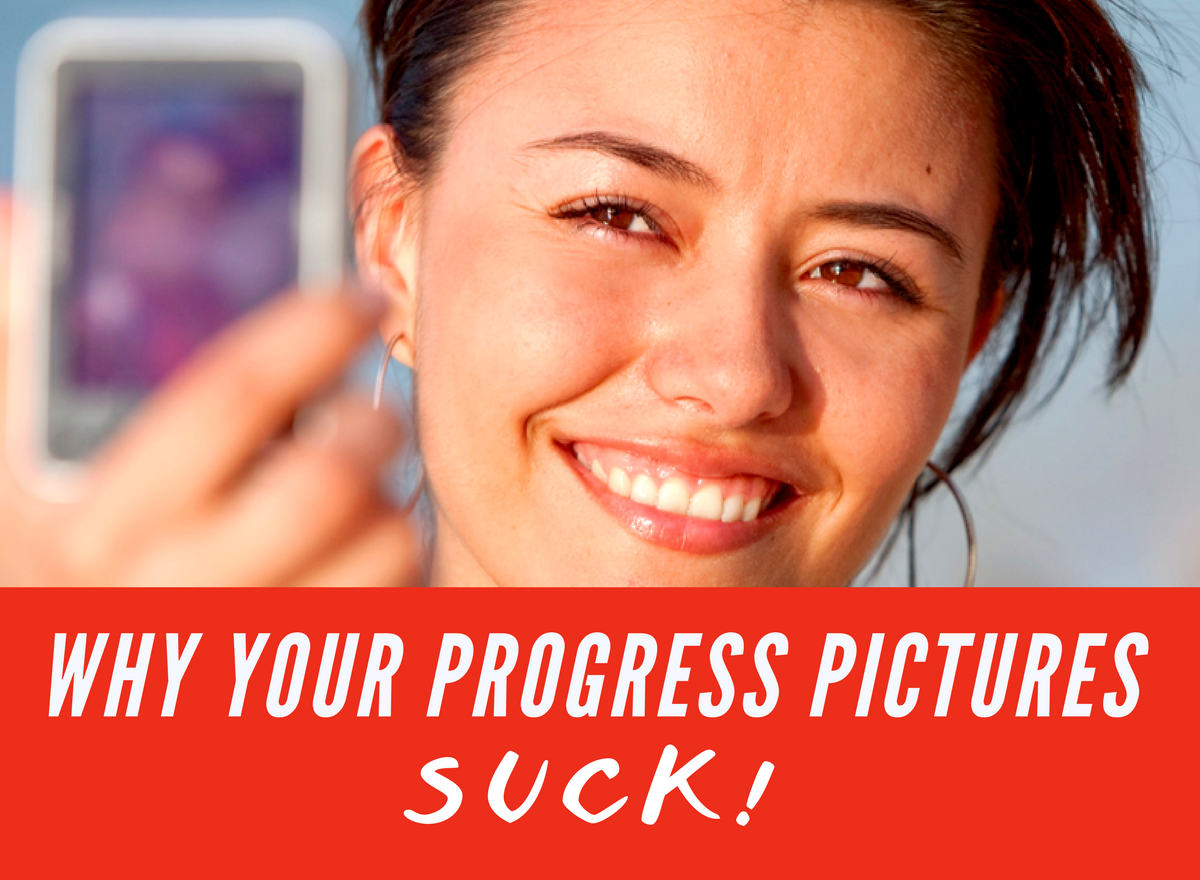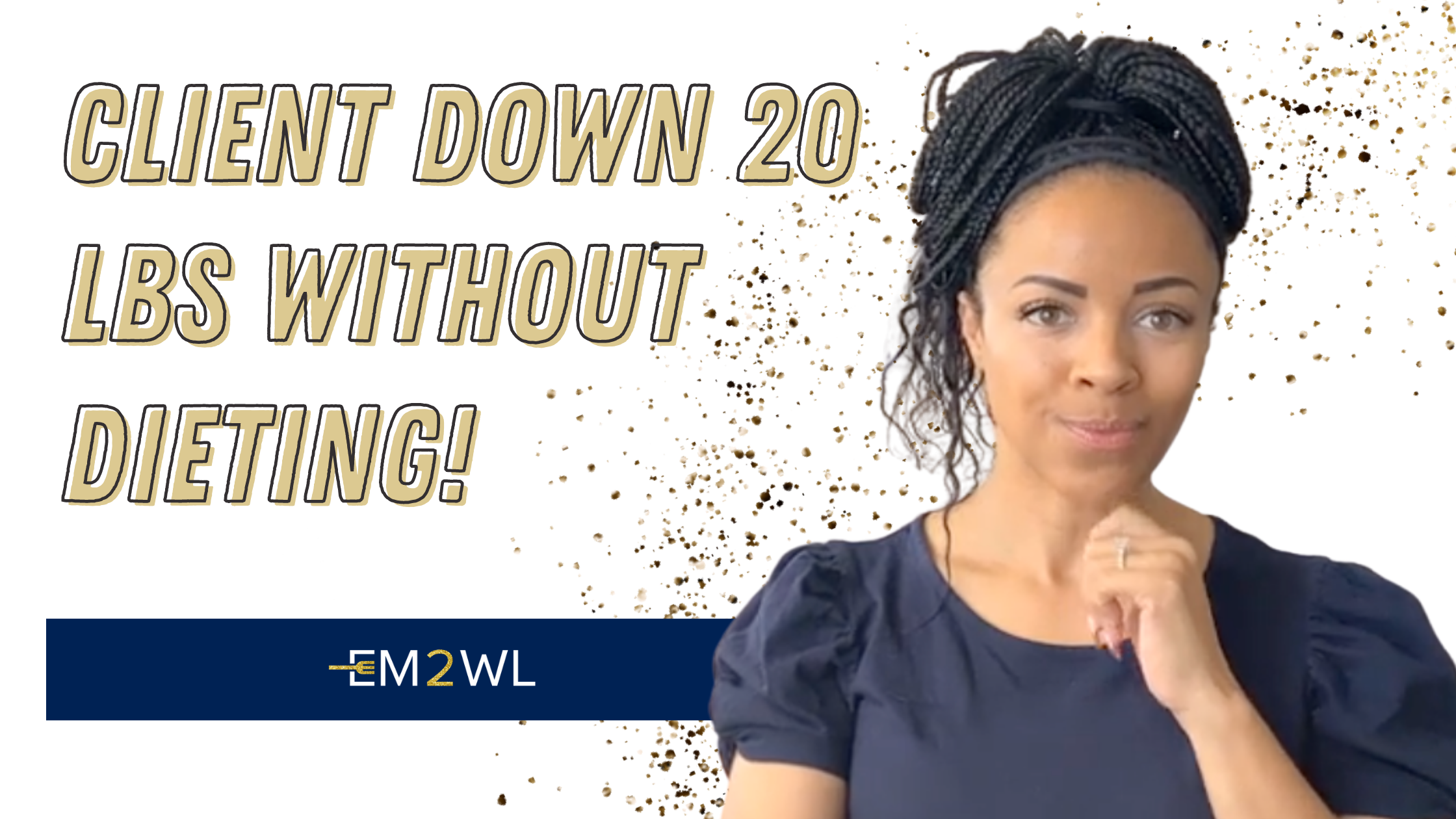Losing weight without tracking food is a recipe for failure.
Now…don’t get me wrong – losing weight without tracking is absolutely possible!
But the sad truth is that so many of us, myself included, spend most of our much more forgiving years (teens, 20s, 30s, etc) caught up in the fantasy of what’s possible short term – rather than the long term effect of that possibility.
We focus more on what we wish our bodies could look like, and how fast we can get there – rather than the honest reality of how we can achieve it, what it takes to sustain it, and the amount of hard work it takes to rewire the Diet Addict mindset.
[The Diet Addict tends to avoid, ignore, or dismiss essential pieces to the puzzle like eating enough, building muscle, or …tracking food intake – simply because they “have been able to lose weight before” without doing it.]
But here’s something you should know: maintaining weight loss is MORE important than losing it, and more indicative of “success” in the eyes of science. And when it comes down to it, refusing to track food intake is one of the number one reasons someone fails when trying maintain a healthy lifestyle and lasting weight loss!
So…does this mean that you need to be chained to a food tracking app for the rest of your life? 🥺
Let’s discuss!
The Problem with Tracking Food
First things first… the elephant in the room.
There are SO many reasons why some women over 40 may not want to track food for weight loss. Here are a handful that have come up repeatedly over the years with my 1:1 clients, and the clients of the PTs I coach:
(Take note: they’re all completely VALID)
- They find it time-consuming and tedious to track everything they eat and drink.
- They may feel overwhelmed by the process of tracking food and find it difficult to incorporate into their daily routine.
- They may feel embarrassed or ashamed of their current eating habits and don’t want to face the reality of what they are consuming.
- They may believe that tracking food is restrictive and takes away the pleasure of eating.
- They may not have access to the technology or tools needed to track their food.
- They may believe that they already have a good understanding of what they should be eating and don’t feel that tracking their food will provide additional benefit.
- They may feel that tracking food is too scientific and prefer to rely on their intuition or common sense when it comes to eating.
- They may not have the discipline to consistently track their food and worry that they will fail if they start.
- They may feel that they have too many other responsibilities and priorities in their lives and don’t want to add another task to their to-do list.
- They may have had negative experiences with tracking food in the past, such as feeling guilty or obsessing over calorie counts.
So with all of these completely valid reasons NOT to log, why even bother placing any emphasis on it?
Well, put frankly… it (always) comes down to YOUR goals. What exactly are you trying to accomplish?
Navigating Successful Fat Loss after 40
Dieting (for many 20-30 somethings) is a lot like hopping in your car to take a road trip with no directions – and no responsibilities. You just let the road take you wherever it goes, because you have nowhere to be, and no one to answer to. As you drive around aimlessly, you may find some extremely cool destinations without even trying. You may also come across some not-so-cool, or even dangerous destinations – but even those may provide a secret thrill…or at very least, a cool story to tell. ☠️
Aimlessness and intuition is fine if you have no goal or specific place you’re trying to get to. There is absolutely a time and place for being carefree, letting your hair down, and exploring your surroundings.
But when you want to get somewhere specific, you need specific instructions and you need accountability for whether you’re following them. Knowing where you are on the map helps prevent you from blaming the route when you haven’t actually started the car. Even if the direction is “wrong” or you decide to go somewhere else – if you have a map, you can backtrack to where you took the wrong turn, instead of continuing on until you’re 100s of miles off-track.
It’s true that some people don’t require tracking after a certain point. Going to places that you’ve gone to HUNDREDS of times before, typically don’t require GPS (unless someone else was driving and you weren’t paying attention!)
But when you’re doing it for the first time – you do (intuitive doesn’t work unless you’ve done the “structure” first to know when to keep going/when to stop, what works and why not).
This can be both a pro and con when it comes to tracking your food and knowing how to eat for fat loss. If you’ve been “winging it,” blind-logging, or following for fad diets for years, that’s what you’ll do intuitively.
Going to the wrong destination. Over. and. over. and. over.
On the other hand… If you’ve been using logging as a tool to hold yourself accountable, build essential habits, and carefully studying what works and why…you’ll be more equipped to intuitively keep the weight off – without logging.
How refusing to track impedes progress
When people refuse to track food for weight loss, they may face several problems that can impede their progress and make it difficult to achieve their goals.
Some potential problems include:
-
- Lack of awareness: Without tracking food, it can be difficult to accurately assess how much and what type of food you are consuming, which can make it harder to identify areas for improvement.
-
- Inability to identify trigger foods or patterns: Without tracking food, it can be difficult to identify specific foods or situations that trigger overeating or unhealthy food choices.
-
- Lack of accountability: Without tracking food, it can be hard to hold yourself accountable for your eating habits, which can make it easier to slip back into old habits or make poor food choices.
-
- Plateauing: Without tracking food, it can be difficult to assess whether you are making progress towards your weight loss goals, which can lead to frustration and plateaus in weight loss.
-
- Inability to make adjustments: Without tracking food, it can be challenging to make adjustments to your eating habits or dietary intake, which can prevent you from achieving optimal results.
-
- Difficulty maintaining consistency: Without tracking food, it can be difficult to maintain consistency in your eating habits, which can make it harder to achieve long-term weight loss success.
Overall, refusing to track food for weight loss can make it more challenging to achieve weight loss goals and maintain them long term.
Only YOU Can Decide
As unnatural and tedious as it may feel, tracking food intake at *some point* in the journey is the key to LONG TERM successful weight loss – it gives you the data needed to set realistic goals, identify trigger foods or patterns, hold yourself accountable for your actions and make necessary adjustments along the way.
With the knowledge you gain during periods of tracking, you’ll finally be able to break through plateaus, achieve lasting success that you can ultimately maintain INTUITIVELY!
So if you’ve been avoiding FULL accountability around logging your food it’s time to decide…
Do you want to keep working really hard (intuitively) and possibly have nothing to show for it? Or would you rather focus on embracing the temporary discomfort/annoyance of tracking your eats, while learning from the data that it’s providing – so you not only lose fat, but also (intuitively and permanently!) keep it off?
If so, here a couple of suggested tools to help you put this into action:
Level 1 – Download the Quick Start Guide (Free), get a free MFP/Lose it account (or log in if you already have one), or pen/paper, etc… and start tracking again!*
Level 2 – Already tracking? Grab the EM2WL Starter Kit Bundle – and develop a more strategic game plan for incorporating the eating phases that most women over 40 have been avoiding for decades.
Level 3 – Join the Workout Vault – track your workouts (not just your food!), match the eating phases to the workouts, and take your results to the next level.
*Our site calculator gives starting points for where your calories should be for maintenance, fat loss, or muscle gain – but I always suggest logging AS IS first to see where you already are in comparison to those numbers.
Discover more from Eat More 2 Weigh Less
Subscribe to get the latest posts sent to your email.





Recent Comments